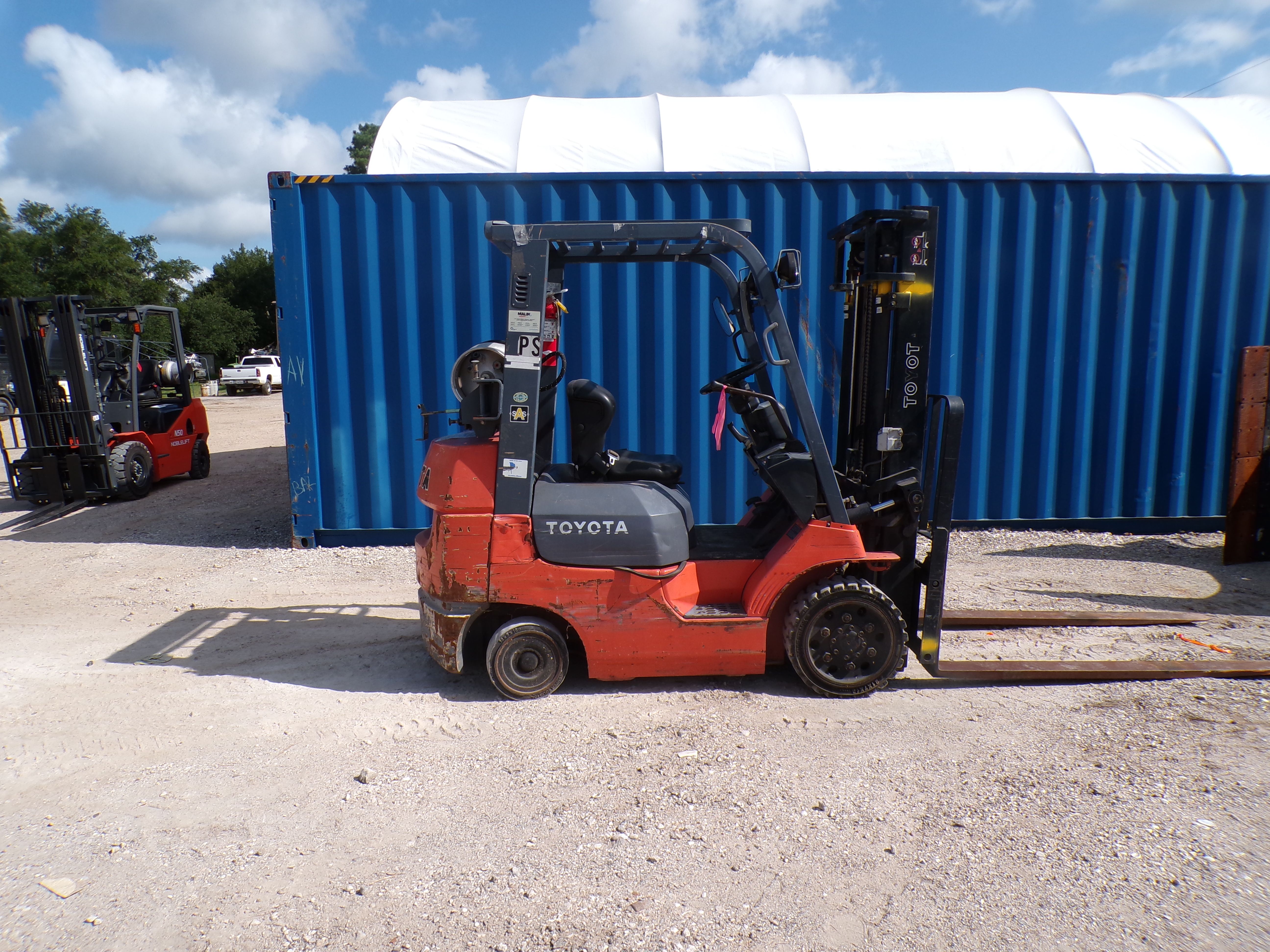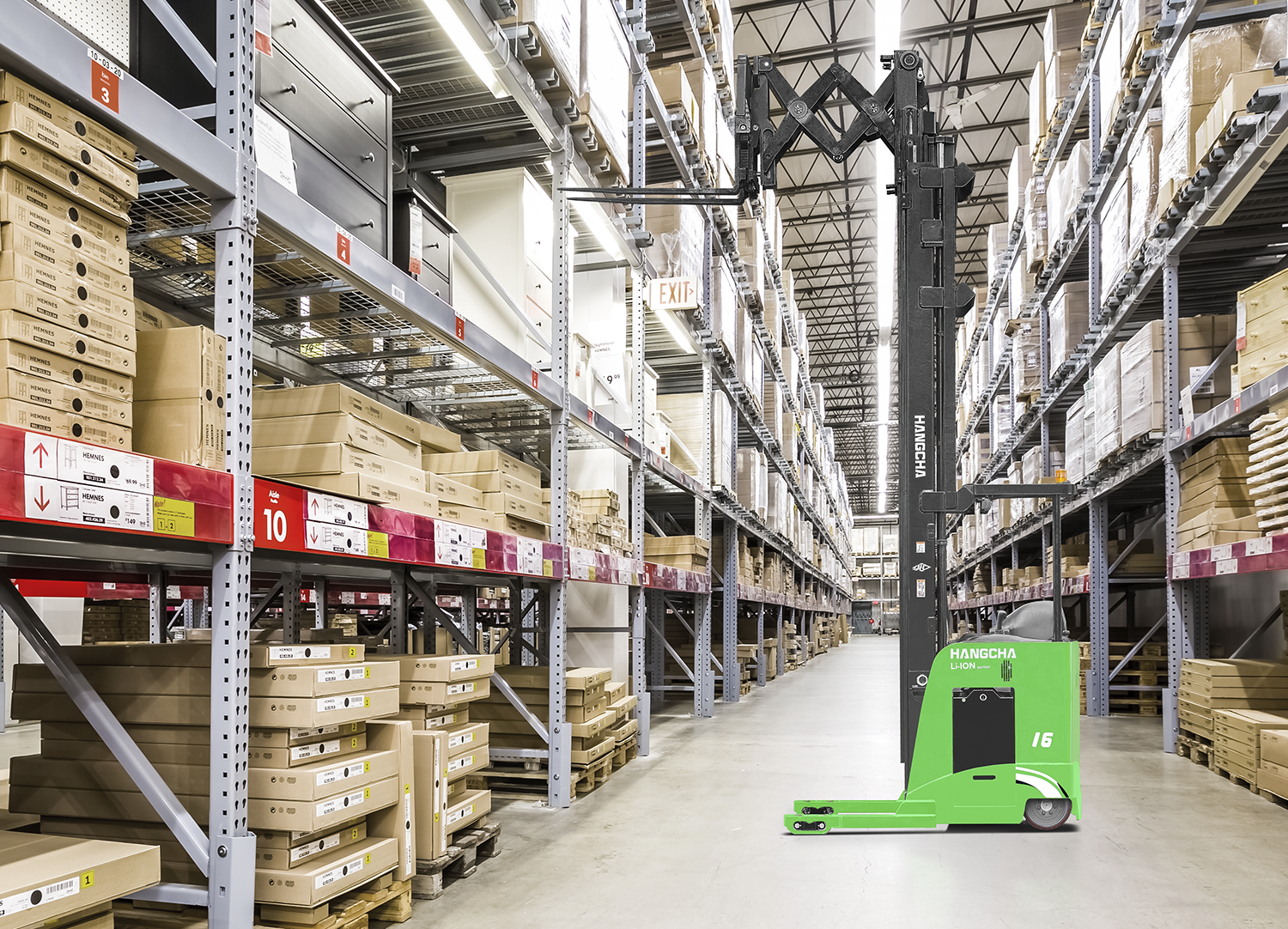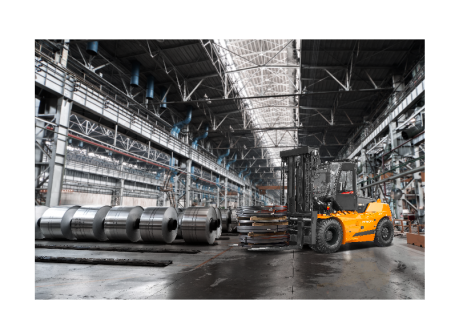Finding the Perfect Forklift for Your Business Needs
Choosing the right forklift is crucial for businesses that rely on material handling, warehouse operations, or construction work. A well-matched forklift improves efficiency, safety, and cost savings, while the wrong choice can lead to higher expenses, downtime, and potential workplace hazards.
Why the Right Forklift Matters
Every industry has different forklift requirements. Warehouses need maneuverable electric forklifts, while outdoor construction sites require rugged diesel-powered models. Selecting a forklift that meets your load capacity, terrain, and operational demands ensures seamless productivity.
Using an unsuitable forklift can cause frequent breakdowns, increased fuel consumption, and inefficiencies in handling heavy loads. Businesses that invest in the correct type see a significant reduction in operational costs and improved workflow.
Key Factors to Consider Before Buying
- Load capacity – Match the forklift’s lifting power with your business's daily requirements
- Environment – Indoor forklifts differ from outdoor models in design, fuel type, and maneuverability
- Fuel type – Electric, diesel, and propane forklifts each have benefits based on operational needs
- Maintenance costs – Some models require frequent servicing, while others offer long-term savings
- Safety features – Ensure compliance with industry safety standards to protect workers
Improve Productivity and Reduce Costs
Businesses that optimize their forklift selection process experience lower repair expenses, increased efficiency, and improved worker safety. Proper research and assessment of your workload, space, and long-term costs will help you make a smarter investment.
Find the Best Forklift Solution
Explore our forklift sales and equipment rentals to find a model tailored to your business requirements, budget, and operational needs.
Key Factors to Consider When Choosing a Forklift
Selecting the right forklift involves multiple considerations, from lifting capacity to environmental compatibility. Understanding these factors ensures that your investment aligns with your operational needs, enhances productivity, and reduces long-term costs.
Load Capacity and Lifting Height
Understanding Load Capacity for Efficient Operations
A forklift’s load capacity determines the maximum weight it can lift safely. Choosing a forklift with insufficient capacity can lead to mechanical strain, instability, and workplace hazards. Businesses must assess their daily handling requirements and select a forklift that matches their load demands.
Comparing Light, Mid-Range, and Heavy-Duty Forklifts
- Light-duty forklifts (3,000–5,000 lbs) are ideal for small warehouses, retail storage, and indoor use.
- Mid-range forklifts (5,000–12,000 lbs) are commonly used in manufacturing plants and logistics hubs.
- Heavy-duty forklifts (12,000–50,000+ lbs) handle large industrial loads, shipping containers, and construction materials.
Impact of Lifting Height on Warehouse Efficiency
Lifting height affects how efficiently forklifts handle inventory in storage racks. A standard warehouse forklift lifts up to 15 feet, while specialized high-reach forklifts extend beyond 40 feet. Businesses with multi-tiered racking systems should consider forklifts with higher lifting capacities to maximize vertical storage.
Indoor vs. Outdoor Use
Choosing the Right Forklift for Your Work Environment
The operating environment determines whether an electric or internal combustion forklift is best suited for the job. Indoor forklifts prioritize maneuverability, noise control, and emissions, while outdoor forklifts require durability and all-terrain capabilities.
Warehouse Operations and Electric Forklifts
Electric forklifts are widely used in warehouses due to their quiet operation, zero emissions, and lower maintenance needs. They work best on smooth indoor surfaces and require regular charging to maintain efficiency. Many industries prefer electric forklifts for food storage, retail warehouses, and distribution centers.
Outdoor Worksites and Diesel-Powered Forklifts
For outdoor applications, diesel and propane forklifts provide the power needed to handle rough terrain and heavy loads. They are commonly used in construction sites, lumber yards, and shipping docks. Unlike electric models, these forklifts can operate continuously without the need for recharging.
Fuel Type and Operating Costs
Comparing Different Forklift Power Sources
The type of fuel a forklift uses impacts its operating costs, environmental footprint, and long-term efficiency. Businesses should evaluate which power source aligns with their budget and sustainability goals.
- Electric forklifts offer low operational costs, produce zero emissions, and are best for indoor use.
- Diesel forklifts provide high torque and are suited for heavy lifting in outdoor environments.
- Propane forklifts balance indoor and outdoor use, with quick refueling and lower emissions than diesel.
- Gas-powered forklifts are less common but remain an option for select industries.
Balancing Upfront Costs and Long-Term Savings
While electric forklifts have a higher initial price, they offer significant savings on fuel and maintenance over time. Diesel forklifts, though more affordable upfront, incur higher fuel and servicing costs. Businesses must evaluate whether lower upfront costs or long-term savings are more beneficial.
Eco-Friendly Benefits of Electric Forklifts
As sustainability becomes a priority, electric forklifts are gaining traction in various industries. They reduce carbon emissions, comply with environmental regulations, and require fewer repairs than internal combustion forklifts. Companies looking to lower their carbon footprint often opt for electric models.
Forklift Attachments and Features
Customizing Forklifts for Specialized Tasks
Attachments enhance a forklift’s functionality by adapting it to specific applications. Businesses can optimize productivity by equipping forklifts with industry-specific accessories.
Essential Attachments for Different Industries
- Paper roll clamps are widely used in the printing and packaging industries to handle large rolls without damage.
- Fork extensions are beneficial for warehousing operations that require additional reach for long or oversized loads.
- Pallet clamps help retail and logistics companies move palletized goods securely without manual adjustments.
Maximizing Efficiency with the Right Features
Selecting the right attachments can significantly enhance a forklift’s efficiency. Companies handling fragile materials benefit from rotators and side shifters, while businesses transporting large goods may require telescopic forks. Investing in the right features ensures smooth operations and better material handling.
Choosing the right forklift requires a thorough evaluation of lifting capacity, operating environment, fuel type, and customization options. Businesses that take these factors into account experience improved workflow, reduced maintenance costs, and enhanced safety. By selecting a forklift that meets specific operational demands, companies can maximize efficiency and achieve long-term success.
Electric vs. Diesel Forklifts – Pros and Cons
Choosing between an electric or diesel forklift is a critical decision that affects operational costs, efficiency, and environmental impact. Each type has unique advantages, making it essential to evaluate your business needs before making a purchase. Understanding the differences in performance, maintenance, and long-term costs ensures that you select the best forklift for your application.
Best Applications for Electric and Diesel Forklifts
Where Electric Forklifts Work Best
Electric forklifts are ideal for indoor environments such as warehouses, distribution centers, and retail storage facilities. Their compact design allows for better maneuverability in narrow aisles, and they operate quietly, making them suitable for areas with noise restrictions. Since they produce zero emissions, they comply with workplace health and safety standards in enclosed spaces.
Businesses in industries like food storage, pharmaceuticals, and manufacturing prefer electric forklifts because they reduce air pollution and require less ventilation. They are also an excellent choice for businesses aiming to lower their carbon footprint and meet sustainability goals.
Why Diesel Forklifts Are Used in Outdoor Environments
Diesel forklifts excel in outdoor settings, construction sites, and heavy-duty applications. They are designed to handle rough terrain, uneven surfaces, and heavy loads with ease. Their robust engines provide more torque, making them ideal for lifting large pallets, shipping containers, and industrial materials.
Many businesses in the construction, agriculture, and shipping industries rely on diesel forklifts for their durability and ability to operate for extended hours without needing recharging. Unlike electric forklifts, they can run continuously without downtime for battery charging.
Cost of Operation and Fuel Efficiency
Lower Operating Costs with Electric Forklifts
One of the biggest advantages of electric forklifts is their cost efficiency over time. While their initial purchase price may be higher, they require significantly less fuel and maintenance. Electricity is cheaper than diesel fuel, and these forklifts do not require oil changes or fuel system maintenance, reducing overall expenses.
Electric forklifts also have fewer moving parts, meaning lower wear and tear, leading to reduced servicing costs. Businesses looking for a long-term cost-saving option will find that electric models provide substantial financial benefits.
Fuel and Maintenance Costs of Diesel Forklifts
Diesel forklifts have a lower upfront cost, but their fuel expenses and maintenance requirements are higher. Diesel fuel prices fluctuate, leading to unpredictable operating costs. Additionally, regular servicing is necessary to maintain their complex engine components, including oil changes, air filter replacements, and exhaust system checks.
However, diesel forklifts offer a longer lifespan when properly maintained. Businesses that require continuous heavy lifting in outdoor conditions often find that the added fuel and servicing costs are justified by the performance benefits.
Power and Performance Comparison
Electric Forklifts and Their Lifting Capabilities
Electric forklifts provide steady power for light to medium-duty lifting. They are best suited for carrying loads between 3,000 to 12,000 pounds, making them a reliable choice for warehouse stacking, loading docks, and retail operations. While they lack the brute force of diesel models, modern battery technology has improved their lifting efficiency.
Some high-capacity electric forklifts can now handle loads exceeding 15,000 pounds, but they still fall short in extreme industrial applications where heavy lifting is required.
Diesel Forklifts for Heavy-Duty Operations
Diesel forklifts outperform electric models in terms of lifting power and endurance. They can handle loads up to 50,000 pounds, making them essential for construction, shipping, and metalworking industries. Their superior torque and acceleration allow them to transport heavy materials quickly, reducing loading and unloading times.
For businesses that need high-powered machinery capable of long shifts without interruptions, diesel forklifts remain the preferred choice.
Environmental Impact and Sustainability
Why Electric Forklifts Are More Eco-Friendly
One of the main reasons businesses switch to electric forklifts is their environmental benefits. They produce zero emissions, reducing air pollution and meeting increasingly strict environmental regulations. This makes them ideal for industries focused on sustainability and corporate social responsibility.
Electric forklifts also contribute to a healthier work environment by eliminating harmful fumes and reducing noise pollution. Many companies looking to future-proof their operations are investing in electric fleets to align with green energy initiatives.
Diesel Forklifts and Their Carbon Footprint
Diesel forklifts release greenhouse gases and particulate matter, contributing to environmental pollution. In enclosed workspaces, poor ventilation can lead to health risks for workers due to diesel exhaust exposure. Some cities and regulatory bodies have imposed restrictions on diesel forklift use in certain industries, making electric alternatives more attractive.
While diesel forklifts remain necessary for high-power applications, businesses are increasingly adopting hybrid models or transitioning to electric options where possible.
Making the Right Choice for Your Business
When to Choose an Electric Forklift
- Ideal for indoor warehouses, distribution centers, and retail facilities
- Best for businesses prioritizing long-term cost savings and low maintenance
- A good choice for companies committed to reducing carbon emissions
- Recommended for environments where noise reduction is important
When a Diesel Forklift Is the Better Option
- Necessary for heavy-duty outdoor applications and rugged terrain
- Best for industries that require high-powered lifting capabilities
- Suitable for businesses that need continuous operation without downtime
- Preferred for construction sites, shipping yards, and industrial plants
Takeaway: Choosing the Right Forklift for Your Needs
If your business operates mainly indoors and values energy efficiency, lower maintenance costs, and environmental sustainability, an electric forklift is the best choice. If you require a forklift with high power, durability, and the ability to handle extreme outdoor conditions, a diesel model will provide better performance.
Compare Your Options and Find the Best Forklift
Explore our selection of electric and diesel forklifts to determine which model suits your business needs. Contact us for expert advice and personalized recommendations to optimize your material handling operations.
Best Forklift Brands for Different Industries
Selecting the right forklift brand is crucial for optimizing performance, durability, and cost-efficiency. Different industries require forklifts with specific features, whether it be for warehouse logistics, high-precision tasks, or heavy-duty operations. Below are some of the top forklift brands, each designed for distinct industry needs.
Toyota Forklifts for Warehousing and Manufacturing
Durability and Low Maintenance Costs
Toyota forklifts are recognized for their reliability and minimal maintenance needs. Their engineering ensures longevity, reducing downtime and repair expenses. Many businesses choose Toyota forklifts for their high resale value and consistent performance.
Ideal for Indoor Warehousing and Logistics
Toyota forklifts are widely used in warehouses, retail storage, and distribution centers. Their smooth operation, tight turning radius, and energy-efficient engines make them ideal for indoor material handling. Many logistics companies prefer Toyota due to its fuel efficiency and ergonomic design, which improves operator comfort.
Popular Model: Toyota 8FGU25
The Toyota 8FGU25 is one of the most commonly used models for warehouse operations. It offers a strong lifting capacity, excellent fuel efficiency, and easy maneuverability, making it perfect for moving palletized goods in confined spaces.
Crown Forklifts for Precision and High-Tech Applications
Advanced Ergonomics and Operator Comfort
Crown forklifts are designed with precision and user comfort in mind. Their ergonomic controls reduce operator fatigue, making them a great choice for businesses that require continuous operation. The inclusion of digital displays and automatic load management improves accuracy.
Best for Distribution Centers and High-Tech Environments
Crown forklifts are commonly used in high-volume distribution centers and industries that require precision handling, such as electronics manufacturing. These forklifts feature smart technology that improves fleet management and tracks operational efficiency in real time.
Popular Model: Crown C-5
The Crown C-5 is known for its low-maintenance engine and fuel-efficient performance. It is an excellent choice for businesses looking to reduce operating costs while maintaining a high level of efficiency in their material handling processes.
Hyster Forklifts for Heavy-Duty Applications
Rugged and Reliable in Tough Conditions
Hyster forklifts are built for extreme durability, making them an ideal choice for construction sites, ports, and industries that require heavy lifting. Their reinforced frames and high-torque engines ensure long-term reliability even in the harshest conditions.
Best for Construction, Ports, and Heavy Industry
Industries that require consistent heavy lifting, such as shipping yards and steel manufacturing, often rely on Hyster forklifts. Their powerful engines and durable build allow them to handle oversized loads efficiently.
Popular Model: Hyster H120FT
The Hyster H120FT is specifically designed for high-capacity lifting. It offers a robust engine, reinforced components, and excellent traction for rough terrain, making it the perfect forklift for demanding outdoor applications.
Where to Buy Reliable Forklifts in Houston
Finding a trusted dealer is essential when purchasing a forklift, as it ensures that you receive high-quality equipment with long-term support. Businesses should look for dealers that offer warranties, certified parts, and flexible financing options to maximize their investment.
Why Buying from a Trusted Dealer Matters
Purchasing from a reputable dealer guarantees that you are getting a forklift that meets industry standards. It also provides access to after-sales support, including repairs, spare parts, and technical assistance.
How Texas Equipment Source Provides the Best Forklift Solutions
- New and used forklifts with competitive pricing for businesses of all sizes
- Certified repair and maintenance services to ensure forklifts operate at peak performance
- Flexible rental options, including short-term and long-term plans, to accommodate different operational needs
Serving Houston, Pearland, and the Texas Gulf Coast
Texas Equipment Source provides forklift solutions for businesses across Houston, Pearland, and the surrounding Texas Gulf Coast region. Whether you need a new forklift, a short-term rental, or maintenance services, our expert team is ready to help.
Find the Right Forklift for Your Business
Explore our selection of high-quality forklifts tailored for different industries. Contact us today to shop forklifts now or get a free quote.
Making the Right Choice for Your Business
Selecting the right forklift is essential for optimizing efficiency, reducing costs, and maintaining workplace safety. Businesses must evaluate their operational needs and choose a forklift that aligns with their workload, environment, and long-term budget.
Key Factors to Consider
Understanding load capacity, fuel type, and terrain compatibility is critical in determining the right forklift. A well-suited forklift prevents mechanical strain, reduces operational downtime, and ensures smoother material handling. Electric forklifts work best for indoor applications, while diesel forklifts are ideal for heavy outdoor use.
Choosing the Best Forklift for Your Industry
Different industries require forklifts with specialized features. Warehousing and retail sectors benefit from electric models that offer precision and low maintenance. In contrast, industries like construction, shipping, and manufacturing demand rugged diesel forklifts capable of handling extreme conditions. Selecting the right brand ensures reliability and longevity in operations.
Get Expert Advice on Forklift Selection
Investing in the right forklift improves productivity and long-term savings. If you need guidance on choosing the best forklift for your business, contact Texas Equipment Source today for expert recommendations and a tailored equipment solution.





